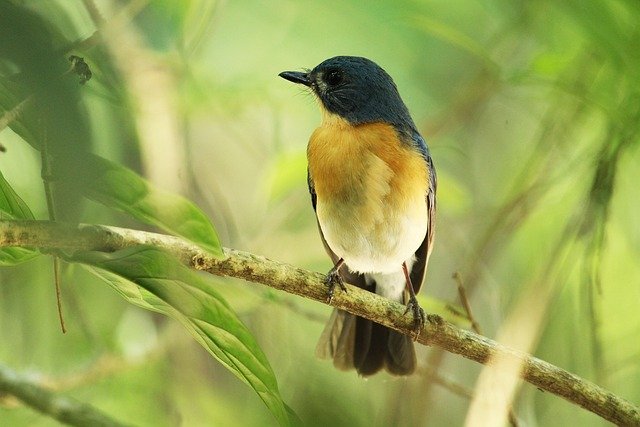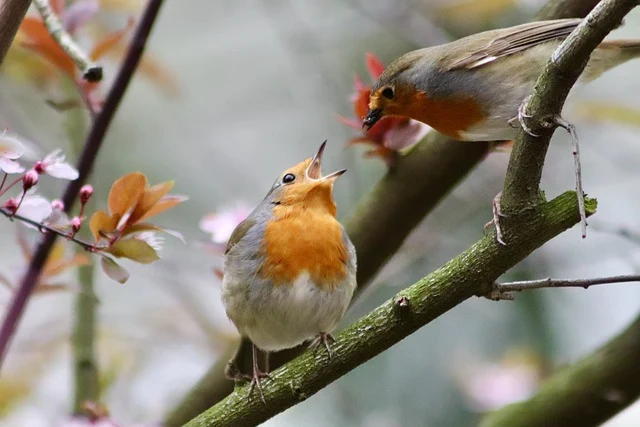Feathered Companions: A Guide to Nurturing Pet Birds” provides invaluable insights into the care and well-being of your feathered friends. Whether you’re new to avian companionship or a seasoned enthusiast, this comprehensive guide covers everything from diet and habitat to behavioral cues, ensuring your feathered companions live happy and healthy lives.

Introduction
Pet birds are delightful companions, bringing color, song, and personality into our lives. Whether you’re a proud parrot parent or a canary enthusiast, understanding the unique needs of these feathered friends is essential for their well-being. In this comprehensive guide, we’ll explore everything from choosing the right bird to creating a nurturing environment and fostering a strong bond.
Choosing the Right Bird
Selecting the perfect avian companion involves more than just aesthetics. Consider factors such as:
Size: Larger birds like macaws need spacious cages and plenty of room to spread their wings.
Personality: Some birds are social butterflies, while others prefer solitude.
Lifespan: Parrots can live for decades, so be prepared for a long-term commitment.

Housing and Environment
Cage Selection
Size Matters: Opt for the largest cage your space allows. Birds need room to move, stretch, and play.
Bar Spacing: Ensure the bars are appropriately spaced to prevent escape or injury.
Enrichment
Toys: Rotate toys regularly to keep your bird mentally stimulated.
Perches: Offer various perch sizes and textures to exercise their feet.
Foraging: Hide treats or food in toys to encourage natural foraging behavior.
Nutrition
Balanced Diet
Pellets: High-quality pellets provide essential nutrients.
Fresh Foods: Offer a variety of fruits, vegetables, and grains.
Safety and Health
Regular Vet Visits
Annual Check-ups: Birds need regular health assessments.
Signs of Illness
Behavior Changes: Lethargy, fluffed feathers, or loss of appetite.
Respiratory Issues: Sneezing, coughing, or labored breathing.
Bonding and Socialization
Spend Quality Time
Talking: Birds love to mimic speech.
Handling: Gently handle your bird to build trust.
Playtime: Interactive play strengthens your bond.

Conclusion
Caring for pet birds requires patience, knowledge, and love. By understanding their unique needs, you’ll create a harmonious home where your feathered friend can thrive.
FAQ
Q-What is "Padded Companions: Really focusing on Pet Birds"?
A-“Padded Companions” is an extensive manual devoted to the consideration and prosperity of pet birds. Whether you’re a first-time bird proprietor or experienced avian devotee, this book offers fundamental counsel on keeping your padded mates blissful and solid.
Q-Who is the creator of "Padded Friends"?
The creator of “Padded Companions” is [Author’s Name], a regarded avian veterinarian with broad involvement with bird care. Their aptitude guarantees that this book gives solid data and reasonable tips for bird proprietors, everything being equal.

Q-How would I prepare my pet bird?
A-Preparing includes encouraging feedback strategies, for example, clicker preparing and offering treats. Begin with fundamental orders like moving forward onto your finger and progressively assemble trust and correspondence.
Q-How might I guarantee my pet bird stays sound?
A-Ordinary veterinary check-ups, a spotless living climate, a reasonable eating regimen, and mental feeling through toys and social communication are vital to keeping up with your pet bird’s wellbeing.
Q-What are normal conduct indications of a blissful bird?
A-Indications of a substance pet bird incorporate vocalizations like singing or prattling, dynamic investigation of its current circumstance, and loosened up non-verbal communication with feathers smooth and smooth.
Q-How would I acquaint another bird with my family?
A-Present new birds slowly, keeping them in isolated confines at first to permit them to become acclimated with one another’s presence. Manage connections near forestall hostility.
Q-What would it be a good idea for me to consider prior to getting a pet bird?
A-Research the particular species to figure out its requirements, life expectancy, and disposition. Guarantee you have the opportunity, assets, and obligation to give legitimate consideration to your pet bird all through its life.